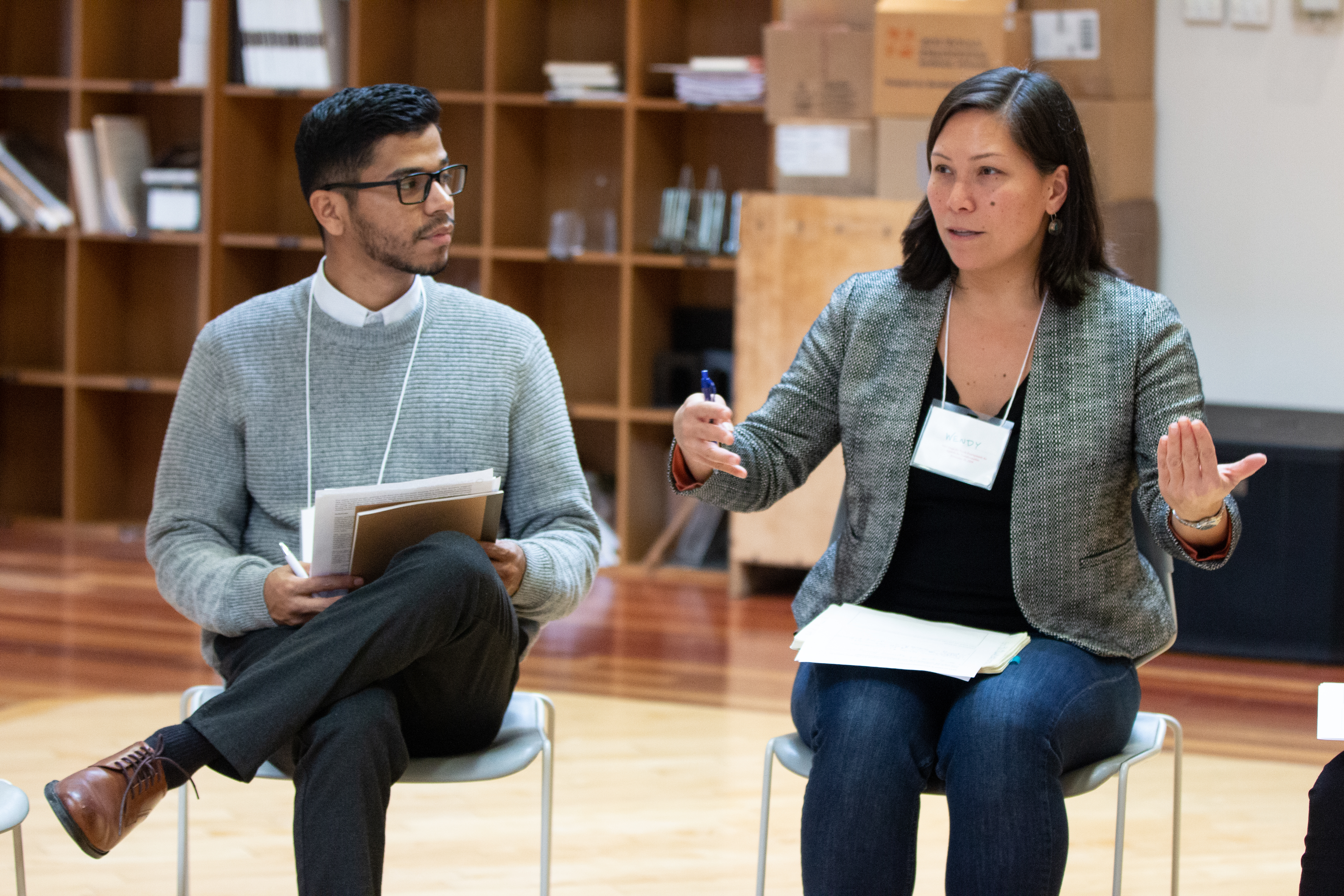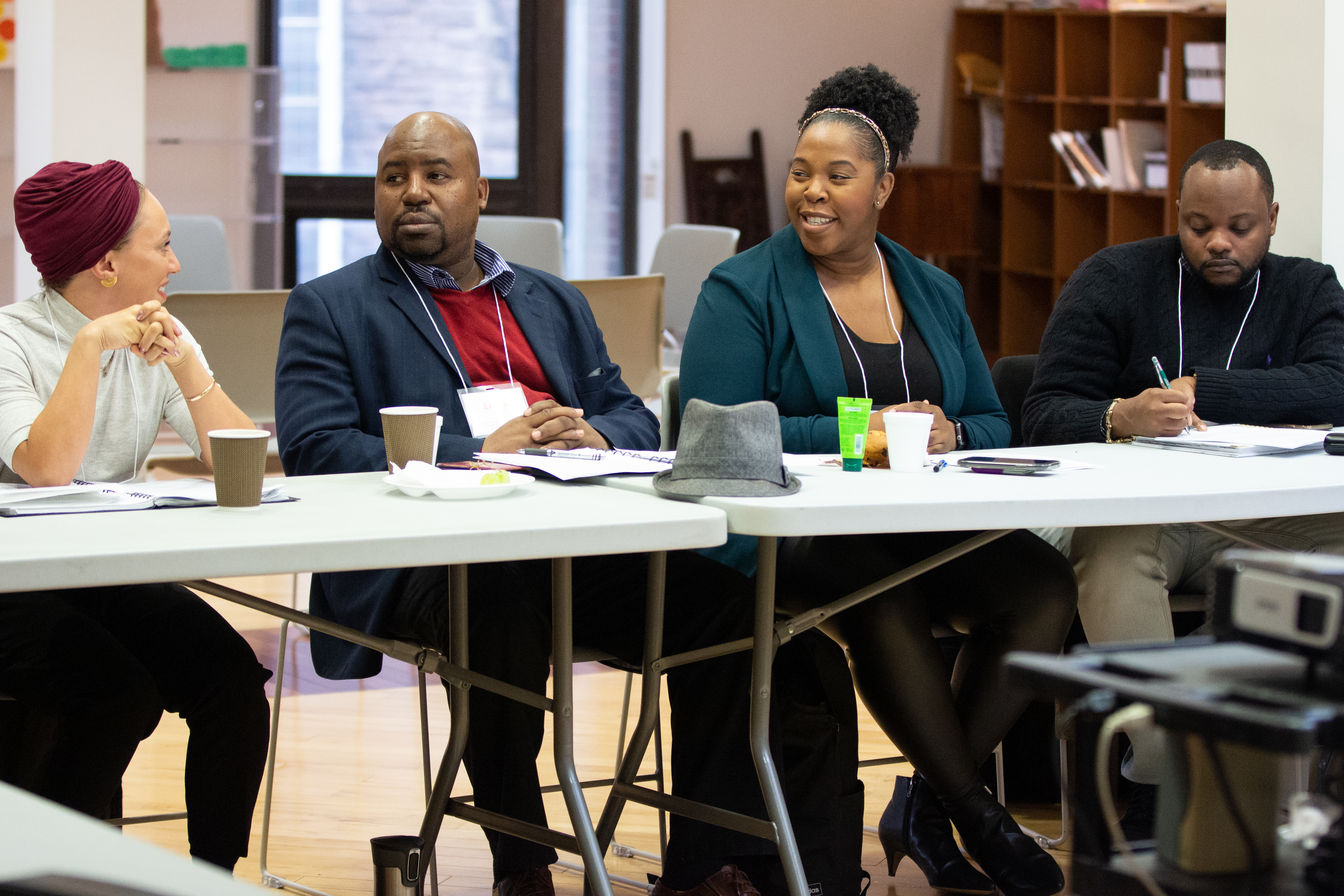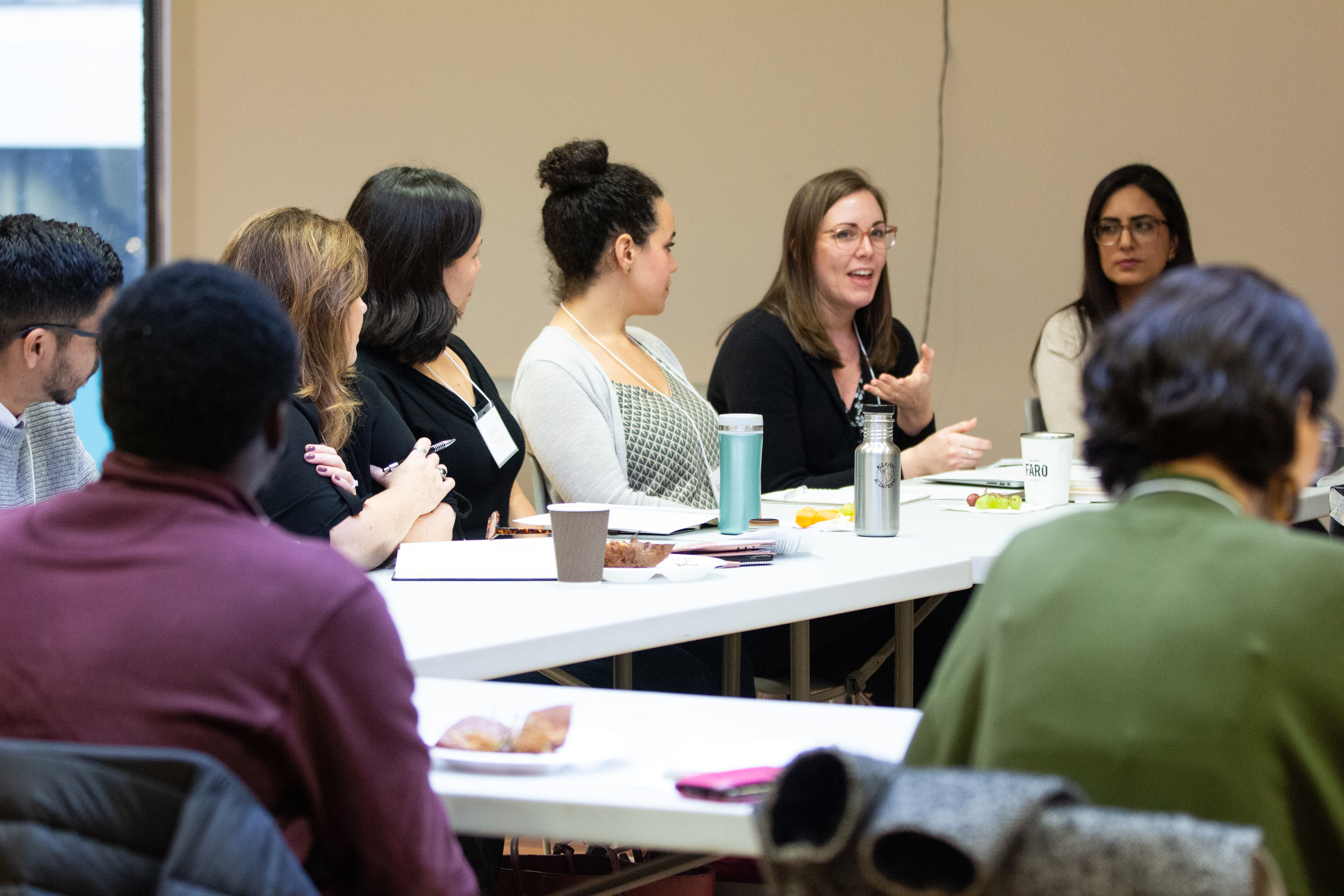“Aspects of this sector are built to be competitive; how do we move toward a culture of collaboration?”. This was the question posed by Cyril Cromwell, Learning and Development Manager for the Youth Research and Evaluation Exchange (YouthREX), a provincial entity based at York University.



He was facilitating a conversation among practitioners and policy-makers who were participating in the third gathering of a Community of Practice on youth employment, held at the Toronto Baha’i Centre on November 19, 2019.
The Community of Practice is a partnership between the Baha’i Community of Canada’s Office of Public Affairs and YouthREX, and this was the final gathering in a series that has examined barriers to youth employment and the power of youth mentorship. The insights from previous gatherings were captured in reflection notes titled: A Place to Land: Addressing Barriers to Youth Employment and A Culture of Mutual Support: Characteristics of Youth Mentoring Relationships. A series of videos also featured a number of the participants in these conversations. These materials were studied and discussed by participants at the beginning of the day.
At the final gathering of the Community of Practice, participants focused on creating an agenda for transformation in the sector. Over the course of the day, themes of partnership, mutual support, and new models of evaluation emerged as primary areas of discussion.
“In order to have a real partnership, we have to define core values that inform collaboration,” said Leticia Rose, Partnerships Coordinator for MLSE Launch Pad. “These values then inform decision-making and ongoing process. For example, we need to agree on creating a culture that has youth at the centre of the organization.”
Likwa Nkala, Manager of Economic Development & Tenant Employment with Toronto Community Housing, added that greater collaboration across the sector is needed to better serve young people. Local economies can shift quickly, and there is a need for young people to be part of conversations with school boards, employers, and social service agencies as part of workforce planning.
Schools also have a role to play, emphasized Ms. Rose. “We need to connect diverse youth to role models, and to expose them to varied workspaces that broaden their perspective of what is possible.”
In this light, she also observed that employers also have a responsibility to help young employees take the next step beyond entry-level positions. This requires a focus on skill-building within the workplace.
Other participants in the gathering discussed how this vision of cross-sector collaboration could take shape. They noted the valuable role played by convening organizations that can bring people together to reflect on their experience, develop relationships, and lay the groundwork for future collaboration.
“It is often said that there is a culture of competition in this sector, but we can see in spaces like this that we are already building a culture of collaboration. The question is not how to build something new, but how to extend this transformative culture into the other spaces where we are working,” reflected Mr. Cromwell.
The purpose of the Community of Practice has been to create a space of dialogue, reflection, and learning for a variety of organizations working to improve employment outcomes for young people. Over the course of three meetings, it engaged almost 100 people in study, learning, and discussion that helped to elicit broader insights into the role of young people in society, and our collective aspirations for their well-being and future prosperity.

